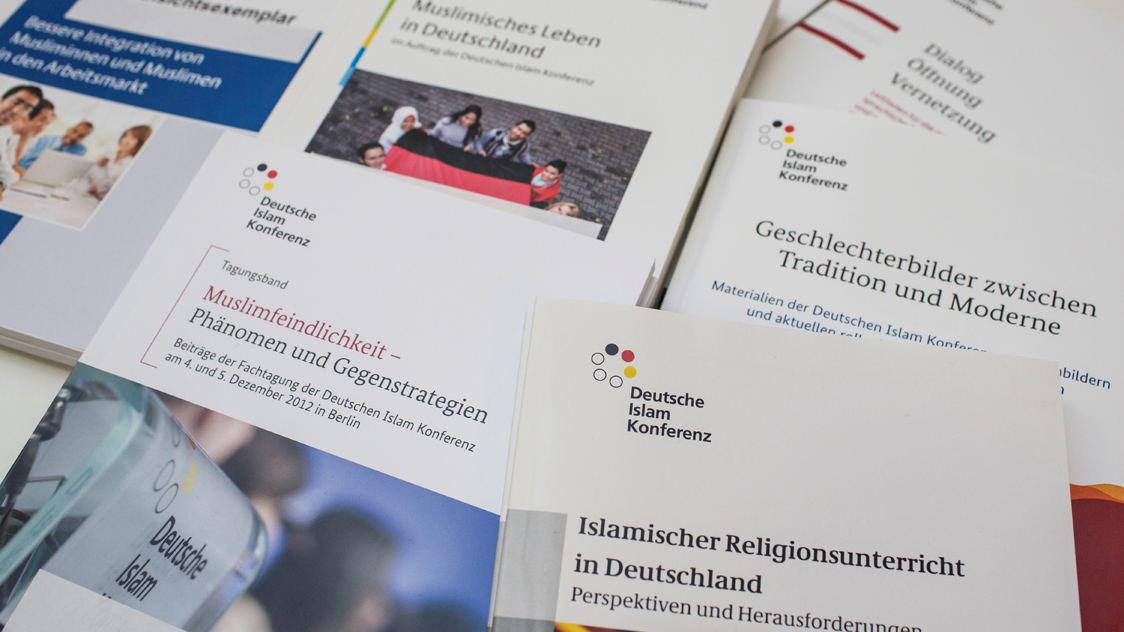DIK 2009 - 2013 (Phase II) ,
In Phase II, the Conference aimed to take forward the results achieved so far, spreading them more widely in German society. The goal was to foster the integration of the Muslim population in Germany both in social terms and in terms of law on religion. With this objective in mind, the DIK took a more practical approach than it did in Phase I. This was also reflected in its structure.
In Phase II, promoting social cohesion in Germany and the cooperation between the government and Muslims on the basis of the constitutional law applicable to religious organisations continued to be central topics on the Conference’s agenda. This included for example further steps aimed at establishing Islamic religious instruction at schools and Islamic theology courses at German universities and preventing extremism and the polarisation of society.
In organisational terms, a plenary composed of government and Muslim representatives that met once a year continued to manage the work of the Conference. The plenary meetings were prepared by a preparatory committee which met every two to three months and established three project groups and one working group. The project groups and the working group each dealt with a specific issue, putting a stronger emphasis on practical aspects by more closely involving the federal states and local authorities.
In this way, additional, new topics were covered including language and socio-cultural training for religious staff, the promotion of gender equality and the discussion of role models, the improved integration of Muslims in the labour market and work with young people to prevent anti-Muslim hostility, antisemitism and Islamist extremism.
The results of the working groups and preparatory committees were presented in four plenary meetings and led to recommendations and publications.


